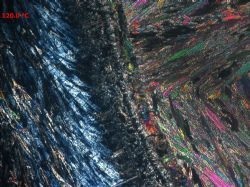 |
| The formation of crystals, magnified--Courtesy of U. of Lincoln |
Scientists in India are looking to further widen their footprint in drug delivery manufacturing, getting in on one of the early floors of a promising technology in the field: nanocrystals. And the researchers say their method is more advanced than that of the small number of countries also involved in the burgeoning arena, giving them what could be a leg up as crystallization becomes a marketable platform.
Currently, the U.S. and Ireland are the only countries in which nanocrystal-based medications are manufactured. But the crystals have huge potential, offering to make drug delivery much more efficient. In response, the National Institute of Pharmaceutical Education and Research (NIPER) in Mohali has taken the step to join what has been estimated to amount to a $136 billion nanotech drug delivery market, 60% of which is expected to be occupied by nanocrystals, according to a Times of India report.
Researchers in Ireland got on board early, forming what they called the Crystallize research network with researchers in the U.K., determined to bring together scientists from around the world to increase understanding of the structures. Crystals can help transport small molecules as well as large biologics to help create viable doses from poorly soluble ingredients, according to a report from the network's founders in June this year. But a problem they face is getting crystals to change from a liquid to a solid state, called nucleation.
And this is where Indian scientists claim they have an edge, growing crystals in their dry form from the start, cutting the cost of the process by almost half, they report.
"Unlike the available and patented technology abroad, the indigenous process generates the nano-crystals directly as a solid powder, rather than as a nano-suspension in liquid that has to be subsequently converted into a solid," NIPER director K. K. Bhutani told the paper. "This has helped in cutting down the cost of generating nano-crystal raw material and opening further competition in the pharmaceutical drug development market."
NIPER's process still remains in lab trials, but the institution has entered a development and commercialization agreement with the Indian Windlas Biotech.
- here's the Times of India story